The Mechanics of Site-Specificity in Fire Season
Four other people were in the “audience.” We tested the headsets and, six feet apart, made our way into the park. Writer/performer Monica Miklas’s live transmitted voice soon filled our ears. She instructed us, from an unknown location, to find space where we could be alone. The “rules” felt clear yet open. Essentially: “Do what is right for you.” Hike quickly or meander or sit. Be careful. I watched the others chose their trails and we set off on our collective/separate experiences.
Fire Season is not so much one traditional narrative but a collection of stories revolving around climate change, ranging from the deeply scientific to Greek myths to personal (of Miklas’s own life). I found myself getting into thought cycles during the show. Just when I’d start feeling dread from a section of text about plastic in landfills, Miklas would start telling a love story. But just when I started disassociating from my surroundings, she would ask me to look for a specific flower on my trail.
In standard theatre, if the audience is staring at the scenery during the production, they’re missing show. In immersive outdoor theatre, to not stare at the scenery is missing the point. In a proscenium space, we purposefully ignore about 75 percent of our surroundings. The forced-focus of typical theatre spaces might be a metaphor for how we also consider (or don’t) climate change on a daily basis. In contrast, the wide-open landscape of Fire Season effectively made me ask, “What if we always absorbed our full surroundings?” At times we might feel a little lost, but ultimately, we’d probably be less ignorant.
The forced-focus of typical theatre spaces might be a metaphor for how we also consider (or don’t) climate change on a daily basis.
During an interview with Miklas and director Lauren Ludwig, I learned their company had been developing this piece since February. Clearly, they dealt with a few surprises, namely the ongoing global pandemic, and unbeknownst to them 2020 would be the worst fire year in California history. Despite these developments, the creators felt they didn’t have to stray too far from their original concept of the show. They had always planned their environmental performance to take place outside. Ludwig told me the main difference between what would have been and what it became were the mandatory masks. She added that she had come to really like the masks because “they are a visual representation of the costs of not addressing the climate crisis.” Miklas chimed in that, while it’s rarely the center of discussion around the pandemic, “Climate change created the circumstance for the pandemic… As we encroach on the wild land and urban interface, we are displacing animals, and typically virulent disease comes from animals.”
For all the pre-show precautions (probably because of them) I felt completely safe during Fire Season. I asked Ludwig and Miklas what advice they would give anyone making theatre during the pandemic. Ludwig’s immediate response was to not do theatre inside right now as the science does not support it can be done safely. Then she added, “Go slow. Use bigger corporations to your advantage.” Companies with much more to lose liability-wise have spent lots of time and money creating their own standards. “Go read those,” she suggests. No need to start from scratch if a company with a huge legal team has already laid solid borrowable groundwork. Miklas explained how, for example, Capital W studied how California restaurants tackled safety protocols and what legal language/enforcement they used. All of that information became the base for their own permits, waivers, and safety plans. “I want to underline ‘Go slow,’” Miklas reiterated. “This is the time to make the most considered, thoughtful, careful work of your career. There’s plenty of time. Nothing else is happening.”
Excellent advice in terms of COVID theatre. But do we have plenty of time to make art about a planet that is literally melting? In terms of addressing climate change, the advice to go slow is a little harder to accept.
But do we have plenty of time to make art about a planet that is literally melting? In terms of addressing climate change, the advice to go slow is a little harder to accept.
The Mechanics of Addressing Climate Change in Fire Season
To be frank, as a playwright and environmentalist myself, I get frustrated when I study climate change theatre. There is still no seminal play society can point to about global warming, no Tony Award–winning musical about deforestation. The repercussions of Western culture’s terrible relationship to the environment are staggering. Over and over, each new global study tells us our time is running out. Scientists have been predicting if we don’t take drastic measures our world might be unlivable by 2040. By now most of us vaguely know the severity and time-sensitivity of climate change, and yet the issue is still somehow shockingly invisible even in the wildly liberal world of theatre. I read the Theatre in the Age of Climate Change HowlRound articles each year. They’re partially inspiring! With each small production and each climate theatre festival, theatremakers gather up opinions and plans to make this world-changing work. But when I look around, I don’t see the world changing fast enough.
I understand why climate change work remains an elephant in our black boxes. How do we get excited to make and view art that, if we’re being honest, seems hopeless, and, if we’re being hopeful, isn’t fully honest? I asked Capital W to share how they approached the work. Ludwig mentioned a sentiment she shares with fellow playwright Mason Flink: every play is a climate change play. Ludwig continued, “It’s the biggest thing happening on the planet. If you’re not talking about it, that’s talking about it. I think it’s true that our current system of existence is over. Our current style of society is dead.”
It sounds like a grim take, but I think many of us have felt the same despair deep in our bones. It might be why we as a society often can’t even face our climate reality. Unlike most other social issues theatremakers can tackle, when it comes to global warming there isn’t a clear path to fix what’s been broken. That said, Miklas feels strongly that humans have a hard time imagining utopia. Maybe today we can’t see what lies on the other side of this fearful global warming moment, but that doesn’t mean there isn’t potential for good there. Ludwig volleyed, “We have the capacity to live in a real range of environments.” Her advice to theatremakers confronting this work is: “Lean into the hopelessness. If we don’t admit that that old thing is dead, more people will die.”
It’s also hard, dramaturgically, to know who a play about climate change is for. If you’re in the know, do you need a depressing reminder? If you think global warming is a hoax, will a play really change your mind? Miklas spoke about her ideal audience member: “People who feel a sense of shame about climate change.” In other words, she wants to reach people who accept climate change but only engage with it passively. Her hope for Fire Season was for audiences to take an accurate account of how much they have contributed to climate crisis. This is, in some ways, “more than they think and less than they think,” she says. “Because it’s a systemic problem, individual action counts, but systemic action counts more.” In other words, yes, I should be aware of how much fracking I’m partially responsible for when I fill up my car with gas, but I can also acknowledge oil companies could stop fracking altogether and redirect to green energy.
It’s also hard, dramaturgically, to know who a play about climate change is for. If you’re in the know, do you need a depressing reminder? If you think global warming is a hoax, will a play really change your mind?
The Mechanics of Hope in Fire Season
In the last ten minutes of Fire Season, Miklas asked everyone in the audience to come back from their varied paths. I hustled toward the trail entryway and found a circle of stones set up several feet apart. Miklas, previously a disembodied voice, was also there, sitting on display with her microphone. The rest of us set up our stools by a stone and watched the final story live. I couldn’t help but feel this was how I should consider our crisis daily: first escape into myself, then remember I am still part of a community. After the show ended, we were told to reach down next to us where postcards and a small brochure of further suggested climate actions sat. The pamphlet encouraged us to eat less meat and get involved politically. We were asked to write a letter to a politician of our choice, which the production would mail for us.
When I first reserved tickets to Fire Season, the California fires were already in full swing. I consciously wondered if the show would actually go on. How likely would it be the play I was allegedly going to see would be foiled by its namesake? As a company, Miklas and Ludwig had to fundraise and pour thousands of dollars into this production, so I asked them, hopelessness in mind, how worried they were they might have to cancel.
Miklas explained that since the ranch had burned just two years ago, there wasn’t enough fuel left in the area to be a serious wildfire target. She told me, however, their development was seriously affected by the Bobcat Fire: “There were a number of days where it was too smoky to go outside.” She also recalled a day she went to the space to rehearse when it was 114 degrees. I asked what they would have done if the air had been as horrible as it had been in September, if the heat was unsafe. Ludwig shrugged and replied, “We’d cancel that performance.” I inquired further, “But not the whole production?” She shook her head. When considering our climate, waiting for perfect conditions is illogical because “perfect conditions” may never again exist. Maybe they never did. As Fire Season’s immersive journey implored me, all we can do is be fully conscious of the chaos surrounding us and take everything else one step, one day, or one performance at a time.

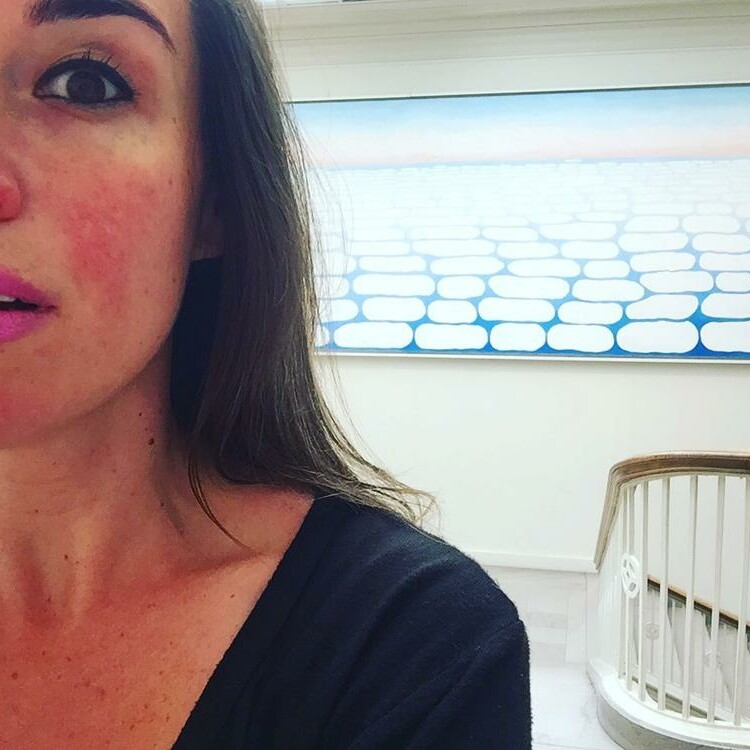
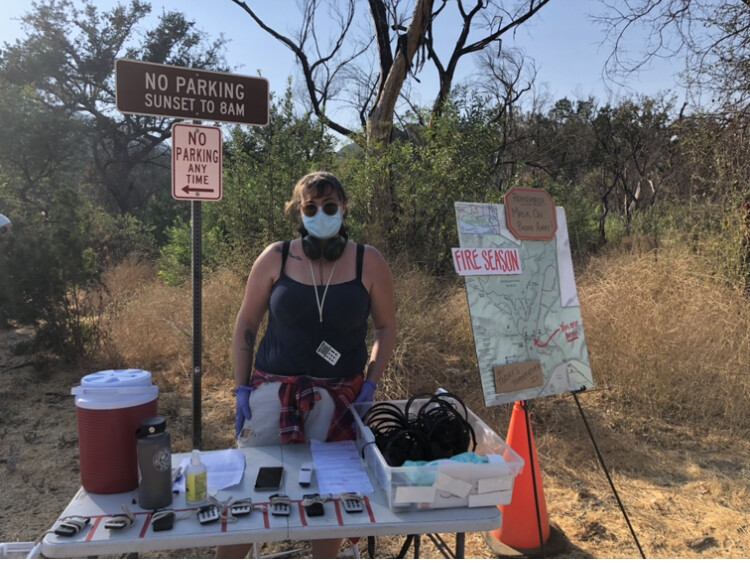
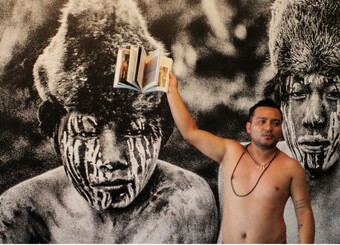

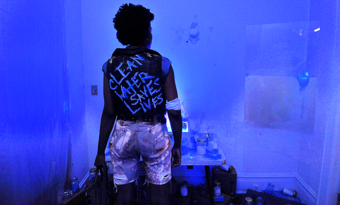

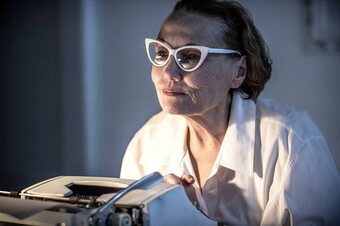

Comments
The article is just the start of the conversation—we want to know what you think about this subject, too! HowlRound is a space for knowledge-sharing, and we welcome spirited, thoughtful, and on-topic dialogue. Find our full comments policy here